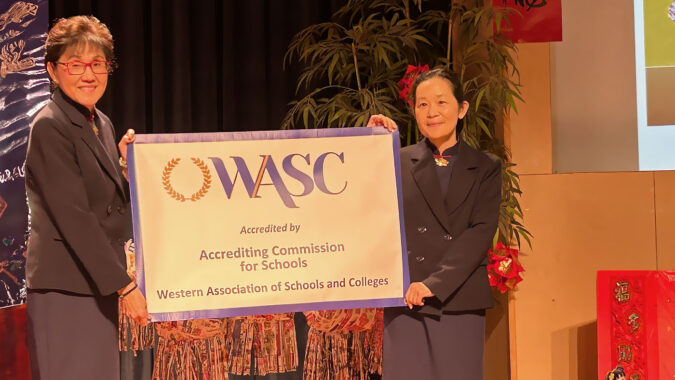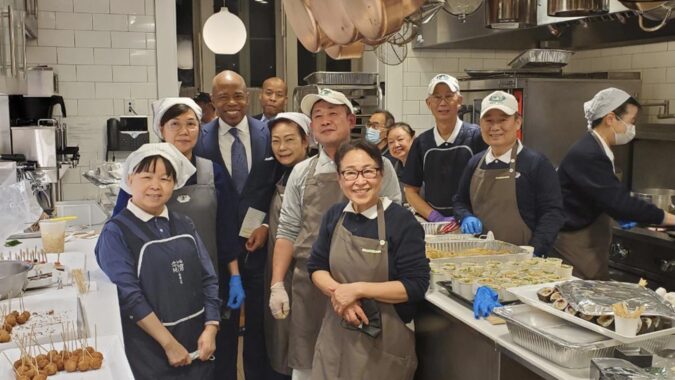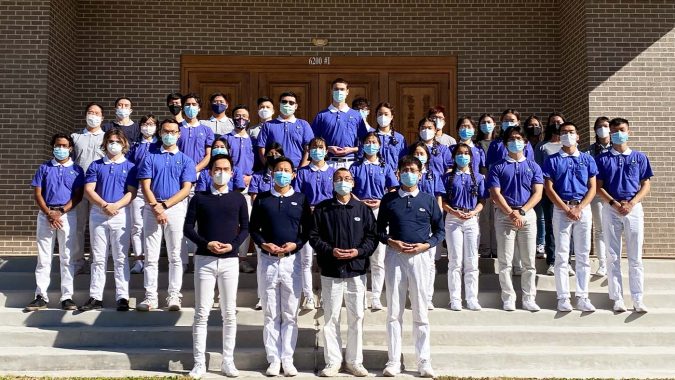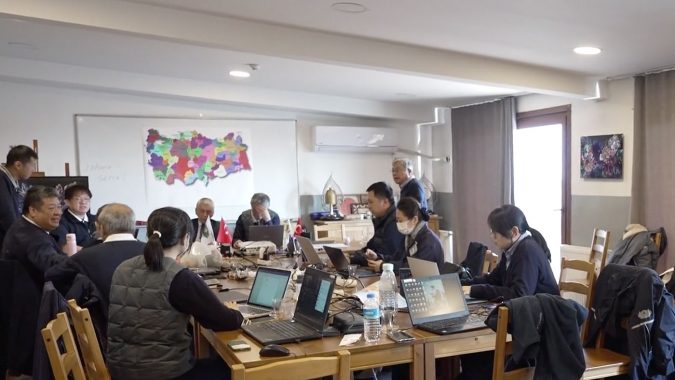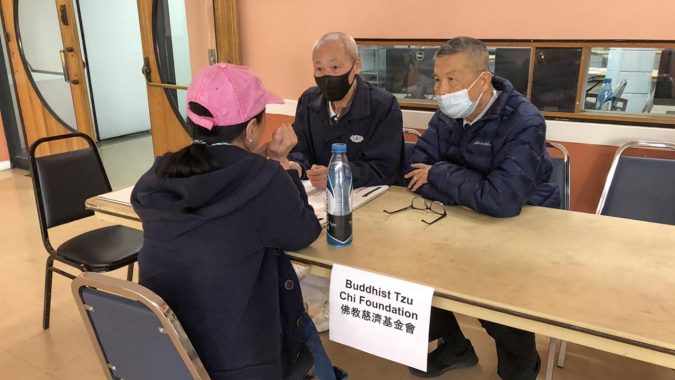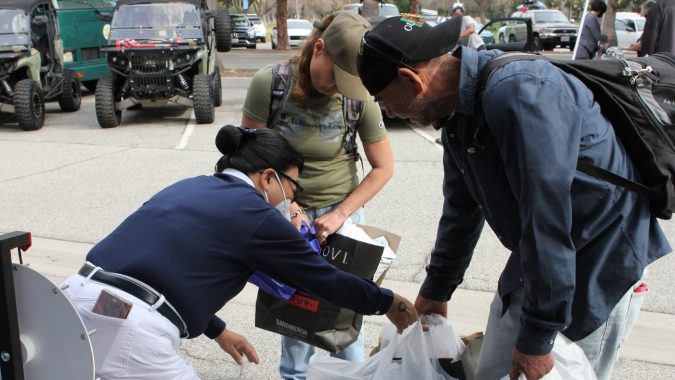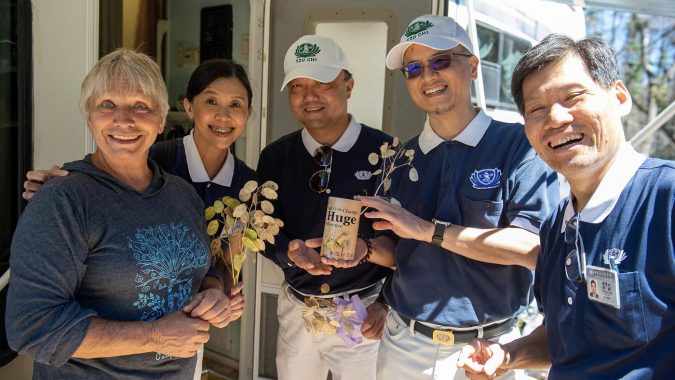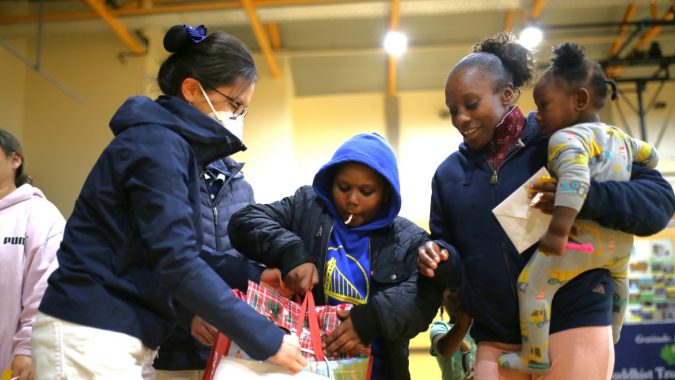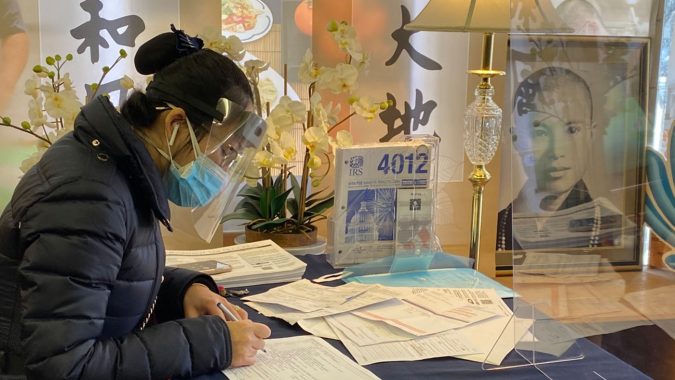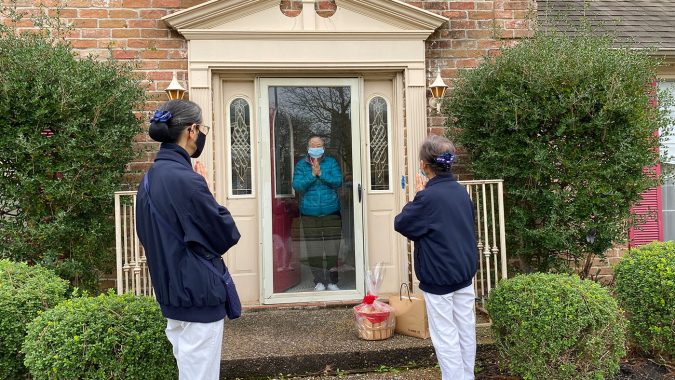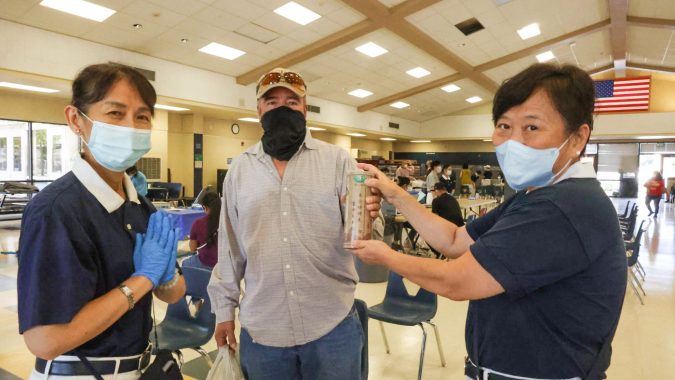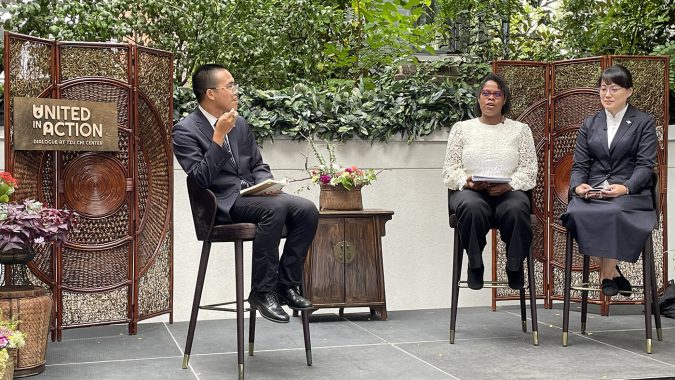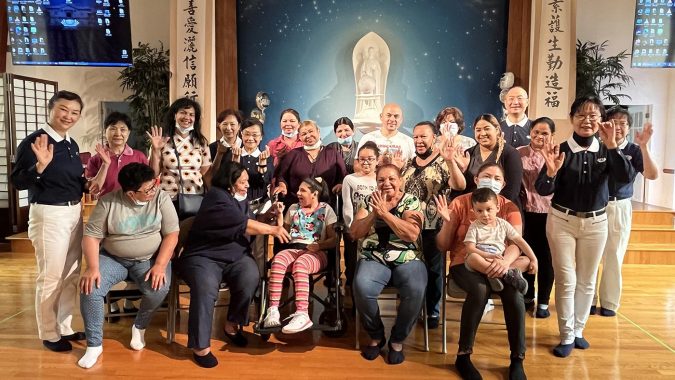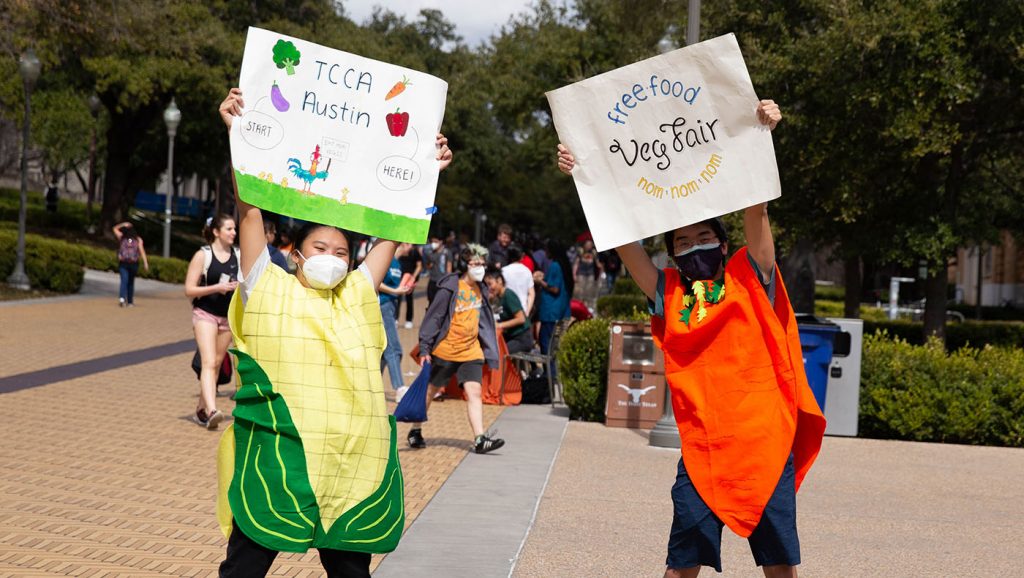
Written by: Fangwen Huang
Translated by: H.B. Qin
Edited by: Maggie Morgan
On Feb. 21, the fragrant smell of Japanese Curry Rice and Ma Po Tofu filled the air at the University of Texas at Austin. The mouth-watering scent enticed 188 University of Texas at Austin students to wait in line and grab a bite for themselves. The Tzu Chi Collegiate Association (TCCA) were the chefs behind the culinary hits as they offered free food as part of the campus’ Vegetarian Food Expo.
Their mission was about more than sharing a meal with their fellow students; TCCA set up shop to spread awareness about the benefits of vegetarianism. The plant-based eats took two hours to prepare and, because of the huge turnout, the event was forced to end half an hour early. The up-and-coming philanthropists had outdone themselves, and the students who visited that booth had learned vegetarian eating was about more than just delicious food.
Young leaders from the The Tzu Chi Collegiate Association have been participating in the University of Texas at Austin’s Vegetarian Food Expo for five years, working with other organizations that share their vision. The event starts an important conversation among students and the public about plant-based eating.
Go Plant-Based for the Planet
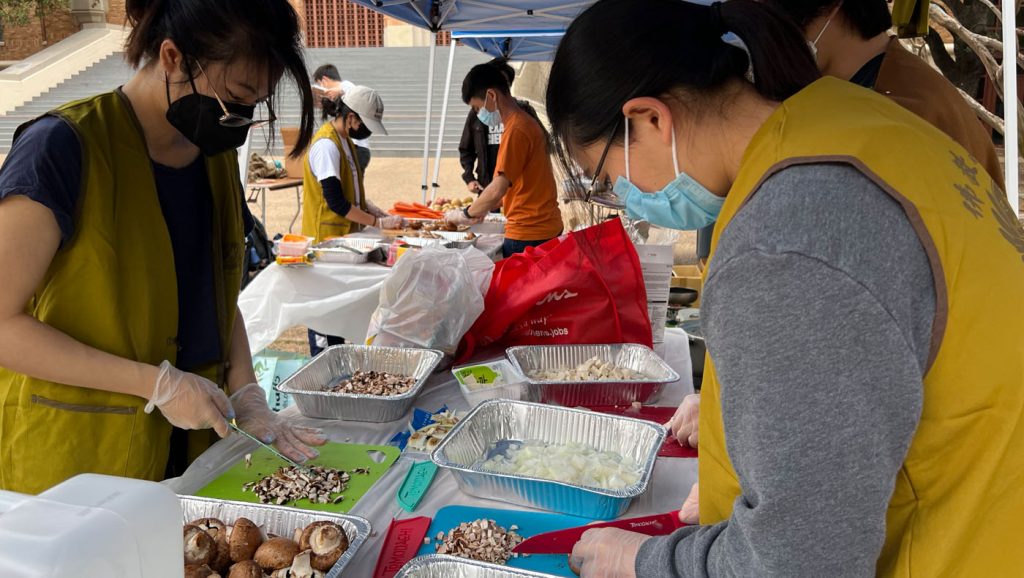
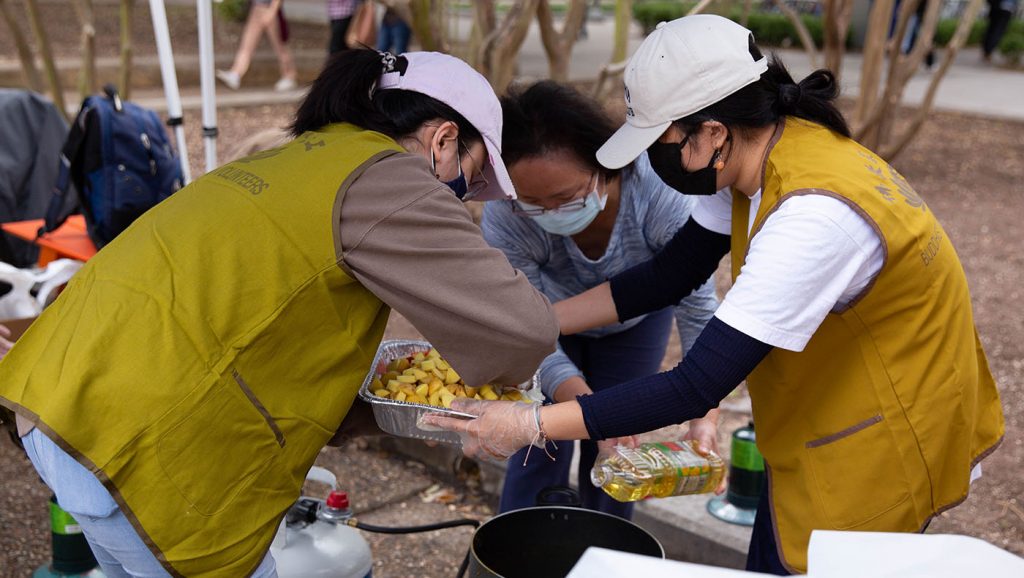
The Buddhist Tzu Chi Foundation has several purposeful philosophies in place, and one of them is rooted in Environmental Protection. The organization discourages meat consumption and advocates for a healthy diet consisting of more fruits and vegetables. Part of living a simpler lifestyle is being intentional in reducing our carbon footprint. It is one step forward to living in harmony with Mother Earth.
Committing to a vegetarian or vegan diet is making a promise to better the global environment, starting with the small space you occupy on this big planet. The United Nations’ Sustainable Development Goals Partnership Platform announced an initiative urging people to consider a plant-based diet, even in a part-time capacity. The council states that minimizing our collective meat consumption is essential to a healthier planet and a more sustainable society. Becoming a “flexitarian” would even be a move in the right direction, and would only entail lowering your weekly intake to 500 grams or less of meat.
The initiative’s description clearly states the problem accompanied by a succinct solution:
“Achieving sustainable production and consumption is essential in the transformation towards a more sustainable society. The negative environmental, health, social and economic impacts of current western excessive meat production and consumption realities are irreconcilable with achieving this goal.”
The United Nations’ push for plant-based eating outlines the following as the ways in which our planet will be positively impacted:
- More food security
- Efficient water use
- Reduced deforestation
- Sustainable energy implementation
- Climate change control
- Innovation and collaboration on a global level
The ways global citizens will impact the world they live in are incredible, and the list is continuing to grow everyday. By shifting to a plant-based diet, whether part-time or full-time, humanity will begin to shift as well. We need to begin living on Earth in a way that will ensure future generations have a place to call home.
The Pandemic Stopped Raining on the Parade
COVID-19 canceled life as we knew it. Event after event was called off or delayed, and the Vegetarian Food Expo was just one of the millions of celebrations washed out in the storm. The event was called off two years in a row as a result of pandemic mandates, but this year, hope was restored. The Expo was finally back on schedule and it was clear that the public had missed it dearly. Students enthusiastically gathered to grub out and gab about vegetarianism.
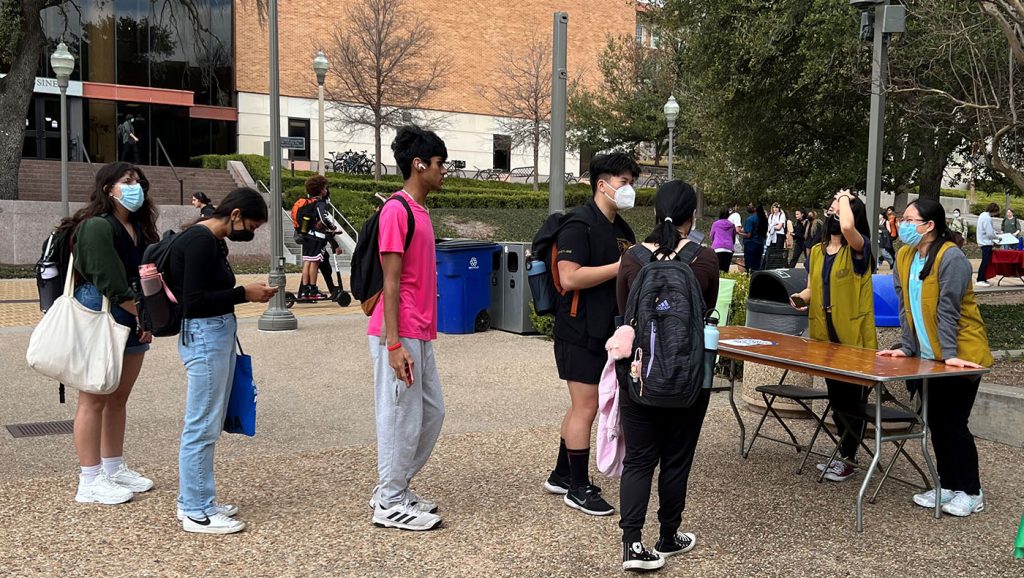
Jeffery Liu, the event leader, said, “In the past two years, the event was held online because of the pandemic, and the promotion of vegetarianism could only be delivered through social media, which always gave the remote feeling. Now that we can interact with the participants in person, we can convey all the messages directly and completely. Judging from the response to the event, he believes that people have become more receptive to the vegan diet because of the pandemic.
Food sharing and the satisfaction of taste buds makes it easier for people to interact with each other and to reach a consensus, especially when the food is free, it always attracts people.
Tzu Ching, Jeffery Liu
At 9 a.m., 29 students from TCCA and four Tzu Chi volunteers started to set up for the on-campus event. The team started to prepare food in their booth with the rest of the vendors located at the court in front of the university’s stadium.
According to the school’s policy, all food was required to be cooked on-site, so volunteers had to make good use of the short two-hour prep time. From cutting and chopping to cooking and serving the cuisines, everyone collaborated to put out the best meals possible. The delicious vegetarian food looked like it had been executed by four-star chefs; the fact that it was ready on time for the event’s start at 11 a.m. was the cherry on top of a dairy-free sundae.
“Is This Really Vegan?”
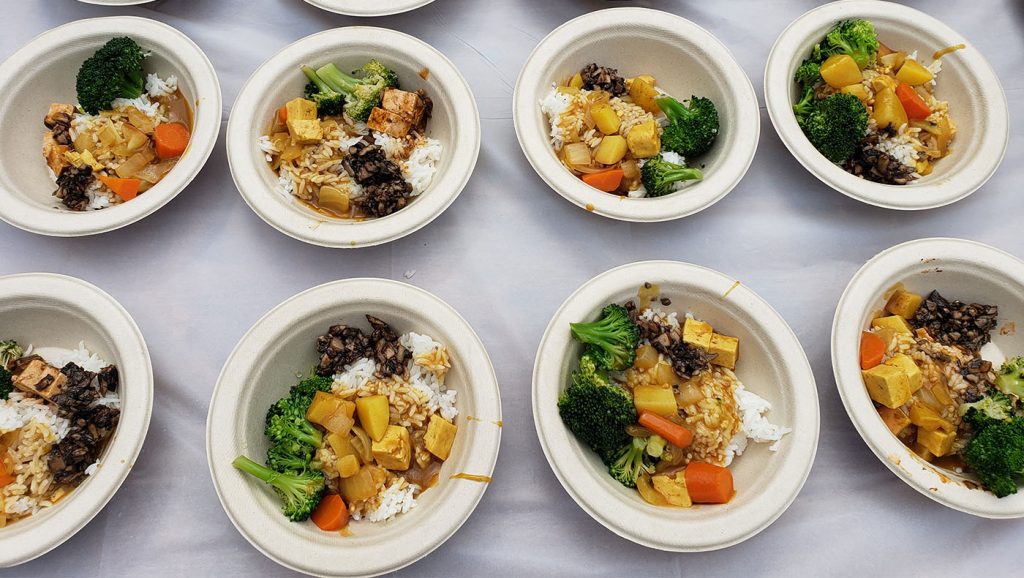
Audrey Hsieh, President of TCCA, was one of the chefs in charge of cooking the cuisines, saying “It was fun to cook with everyone, and I hope that through a vegetarian diet, we can raise awareness of the environmental impact.”
Audrey Hsieh described the cuisines served, “We cooked Japanese Curry Rice and Ma Po Tofu with ingredients such as carrots, potatoes, onions, mushrooms, green broccoli, and tofu. The aroma was overwhelming, and the response was very good.”
Dressed in vegetable costumes, Tzu Chings held a vegetable photo backboard and call out loud to the pedestrians, “Free vegetarian food!” The promise of a complimentary meal worked, and soon the flow of traffic merged over to the TCCA’s booth. The Tzu Chings were well equipped to let their hungry guests know more about the benefits of a vegetarian diet; the passionate students detailed how a plant-based lifestyle helps slow down global warming, improves the health of families and individuals, and can assist the community in eliminating pandemic stressors.
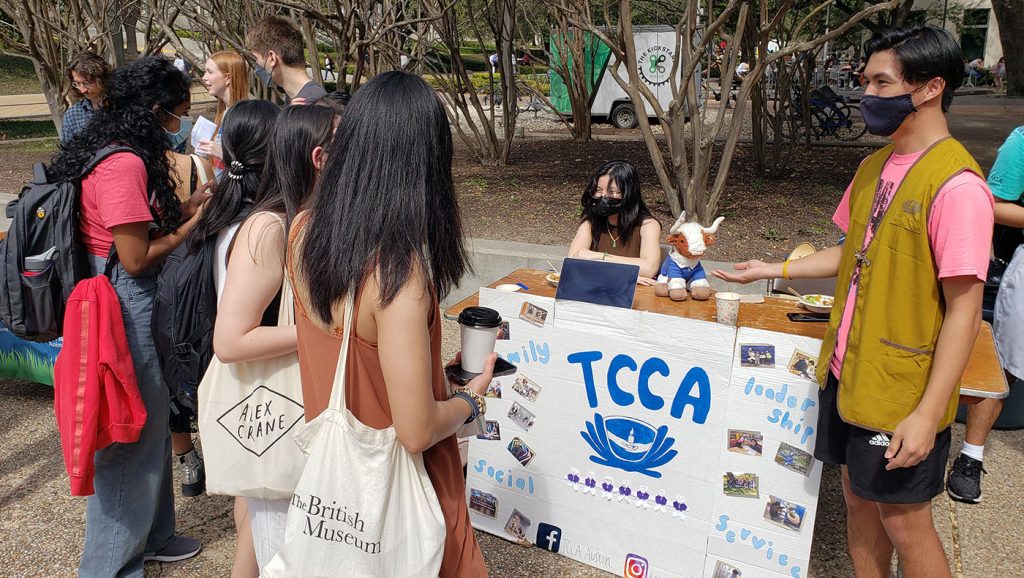
Everyone who came to the Tzu Chi booth was able to scan the code to redeem free Japanese Curry Rice and Ma Po Tofu after listening to Tzu Ching volunteers’ advocate for vegetarianism and introduce their parent organization, Tzu Chi USA.
A United Front for a Better Future
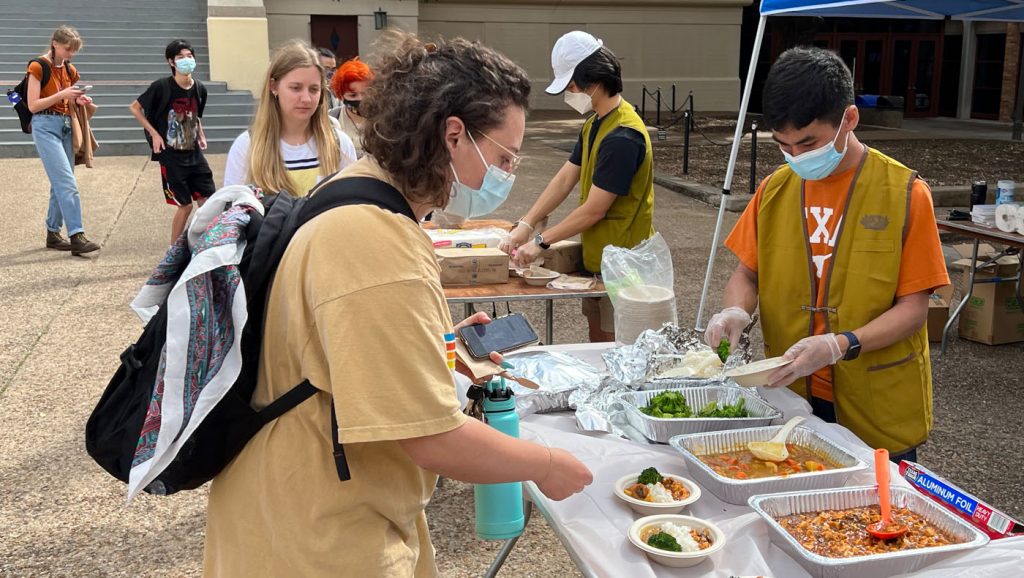
Amber Gonzalez, a University of Texas at Austin student, tasted tofu for the first time at the TCCAA booth. She said she was amazed by the flavor and texture of the Ma Po Tofu, and was surprised that what she was eating was all plant-based.
“I actually thought about going vegan, so maybe I’ll start with a vegetarian diet,” the student thought out loud. When a Tzu Chi volunteer asked her if she would consider starting the change just a few times a week or once a day, Amber immediately replied, “Yes, I would.”
Is this really vegan? It's an eye-opener for me! I'd like to start a vegetarian diet.
Student Amber
The day’s event ended on a high note, and the volunteers and Tzu Chings felt accomplished in knowing they had served killer cuisine while making an impact and changing minds. It’s key to remember that these vegetarian values aren’t based in personal preference, but there are stats to back up its validity. Some studies suggest that fifteen meat-free meals can reduce carbon emissions by 12 kilograms; based on those numbers, the vegetarian meals served on Feb. 21 reduced carbon emissions by 150 kilograms, the equivalent to planting a tree.

Tzu Chi volunteers are devoted to continuing the same kind of momentum felt on that college campus. Whether you want to try the UN’s “flexitarian” suggestion or go full vegetarian, making a concerted effort to change your lifestyle will help alleviate global warming. This movement is bigger than any one of us; it means a better world for the other beings we share the planet with and a sustainable future for generations to come.
Check out some vegetarian meals that you can cook at home to get started on your journey. You never know, your tastebuds might have you asking, “is this really vegetarian?”

